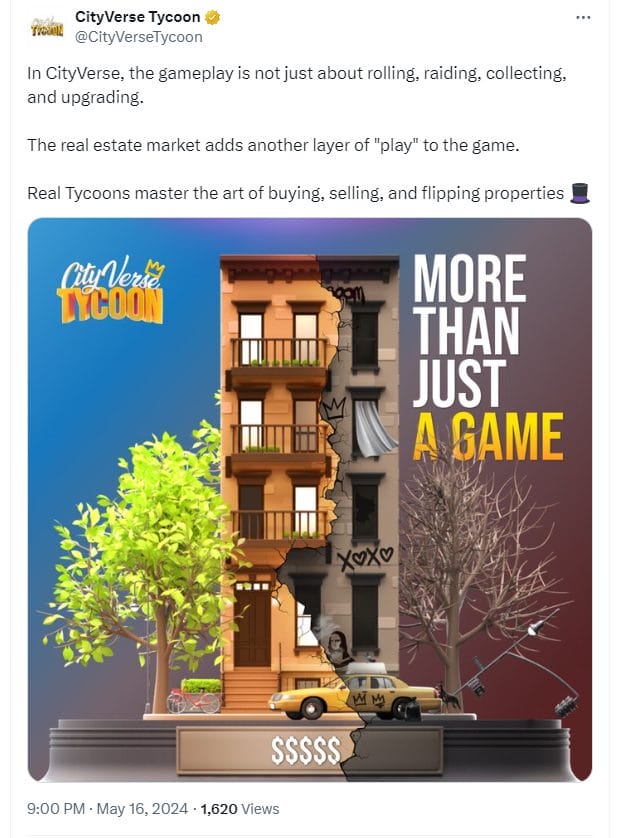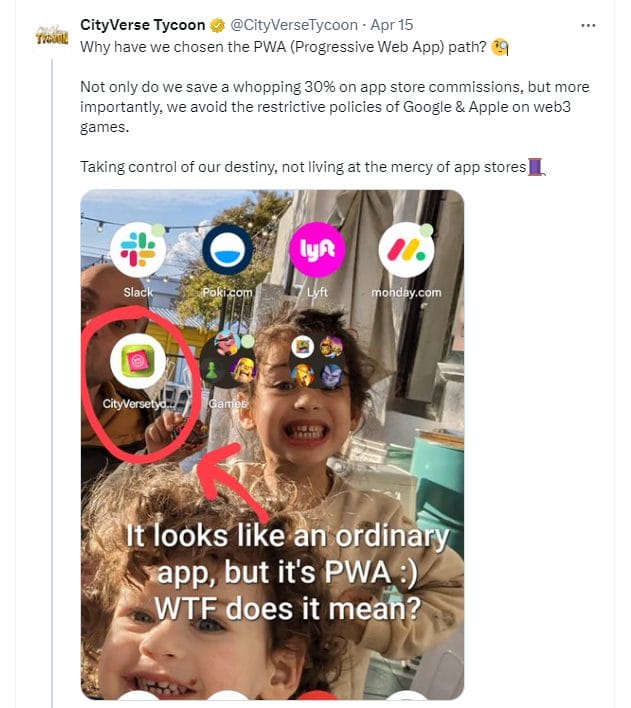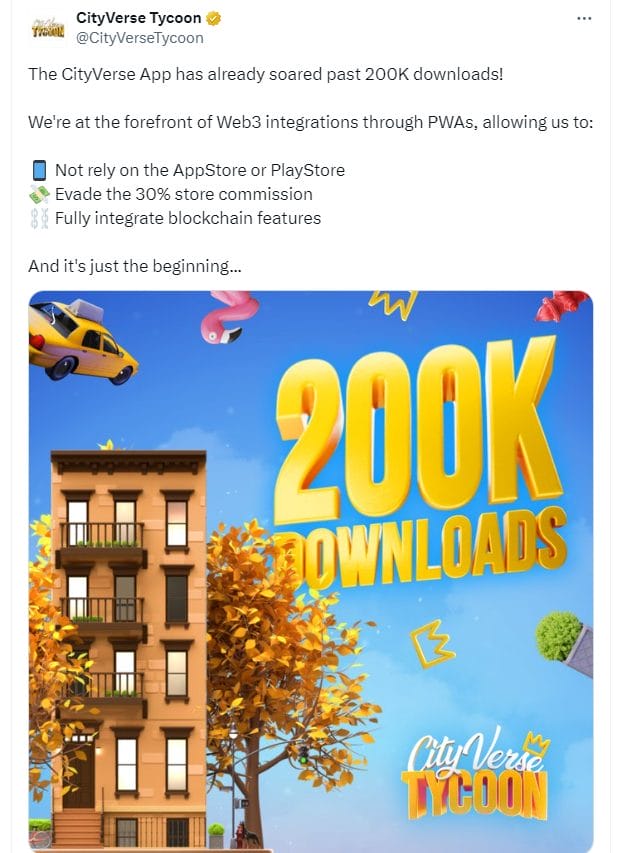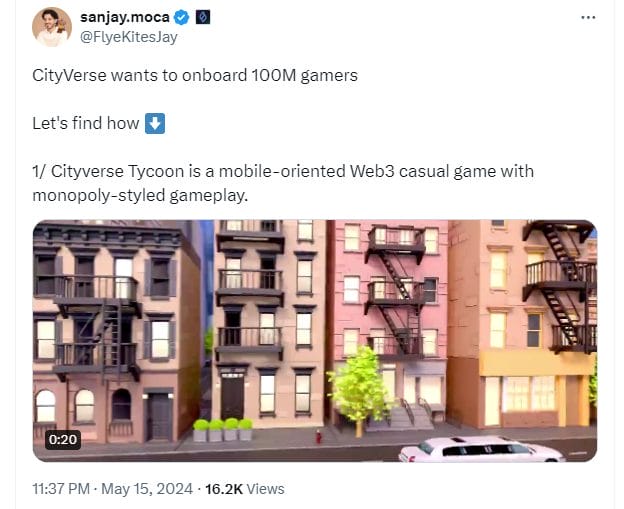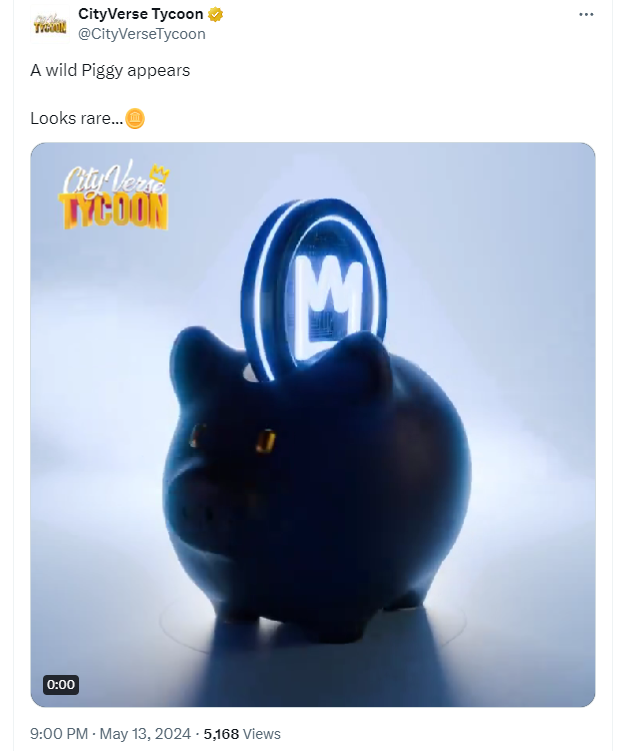Tomer Pascal, CEO of CityVerse Tycoon, on Web3 Mobile Gaming Ecosystem, PWAs, and Battling the Apple/Google App Stores | Ep. 335
05/20/2024 17:30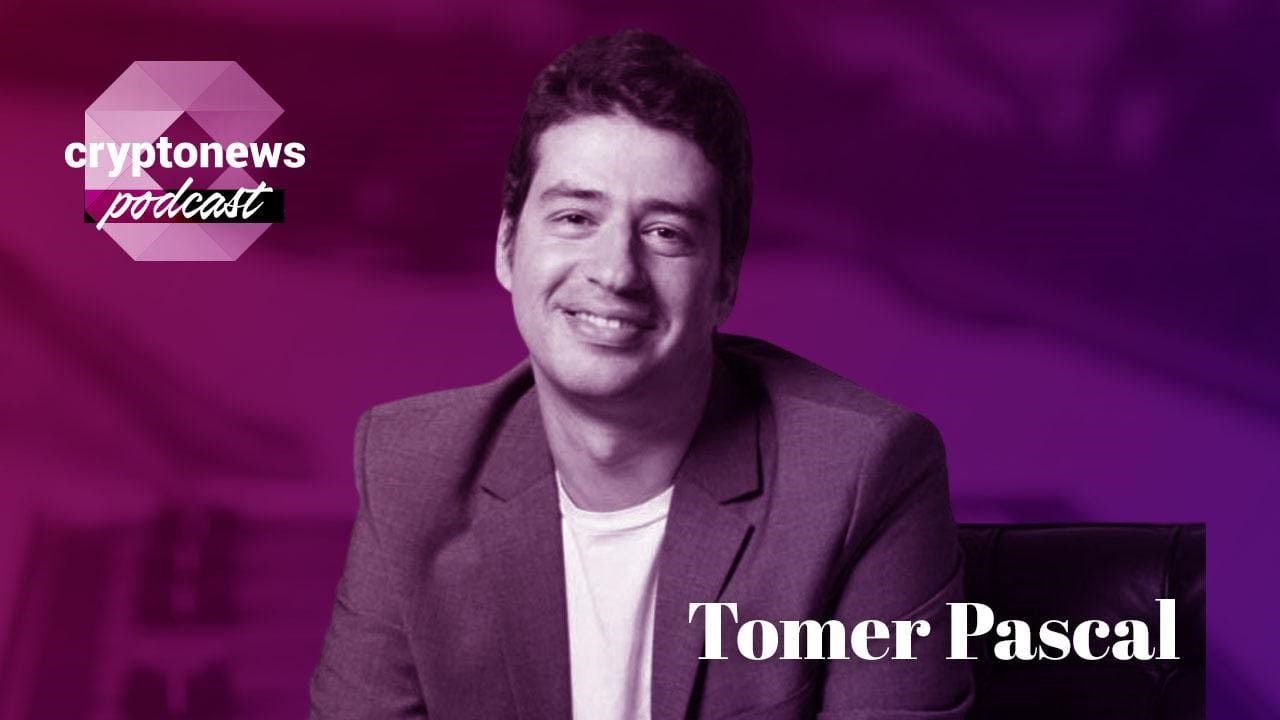
Tomer Pascal, the CEO of OwnPlay, the developer of the PWA game CityVerse Tycoon, discusses the advantages of Web3 gaming over Web2.
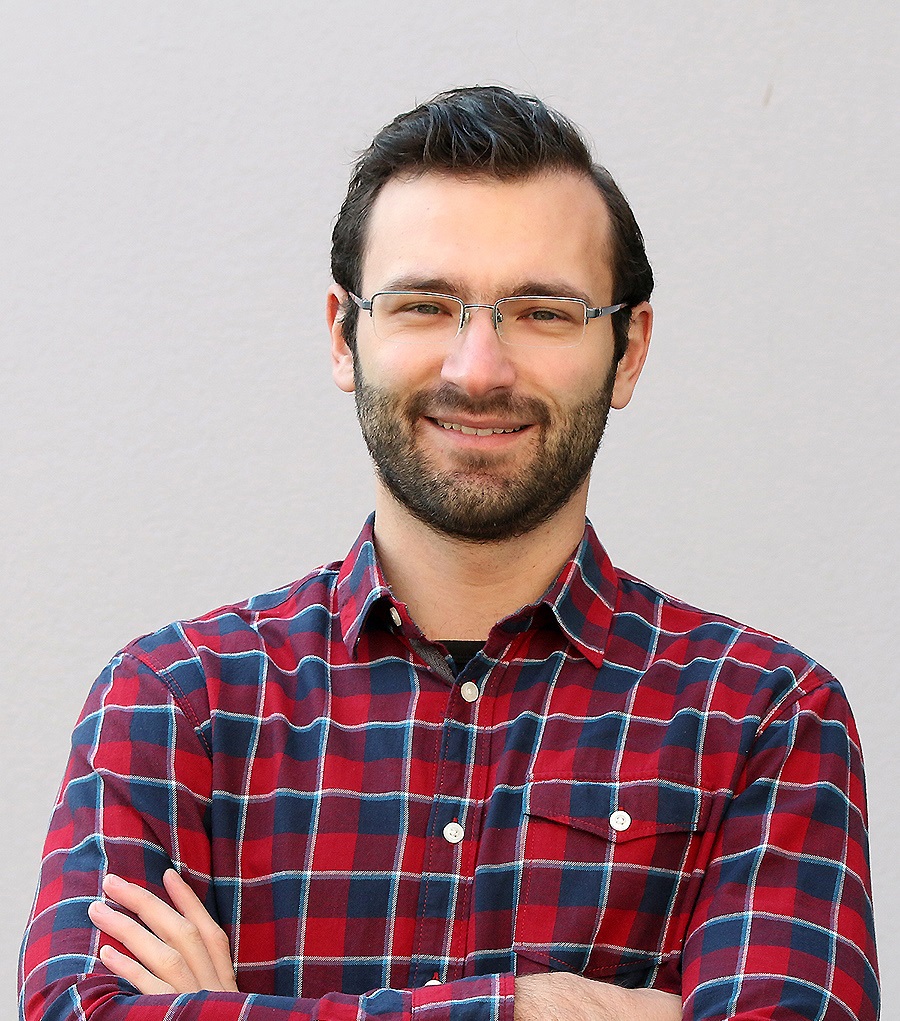
Last updated: | 4 min read

Cryptonews Podcast host Matt Zahab recently sat down for a chat with Tomer Pascal, the CEO and co-founder of OwnPlay, a Web3 mobile gaming ecosystem and developer of CityVerse Tycoon, a PWA game allowing players to trade, buy, and sell tokenized replicas of real buildings in New York City, USA.
Pascal talked about the advantages of Web3 gaming over Web2, deciding to avoid Apple and Google for its game, succeeding in creating a PWA game, and the exciting launches coming very soon.
Web3 Advances Gameplay
It was 2022 when Pascal reached out to his old colleague Boaz Levin about creating a startup together. Pascal found that the time was finally right for the Web3 gaming.
Their joint endeavor eventually became OwnPlay.
“Creating a mobile Web3 game presents a big opportunity,” he said to Levin.
Web2 became heavily dependent on paid customer acquisition. But Web3 elements are exciting, he said.
They allow people to finally leverage gameplay to provide the players themselves an option “for a potential financial upside from the gameplay itself.”
If done correctly, it can add a new level of excitement to the gameplay and continue the Web3 narrative, sad Pascal.
Evading Apple and Google
OwnPlay created CityVerse Tycoon to provide its players with a seamless experience, Pascal told Matt.
However, the team had a giant conundrum – Apple and Google. “How the hell are we going to bypass this,” they wondered.
Apple Store and Google Play are extremely unfriendly to anything crypto-related. Getting approval for a Web3 game with non-fungible tokens (NFTs) would be impossible.
These companies are primarily protecting their own interests – primarily, financial interests. These may or may not align with user interests.
What they do not align with is the on-chain experience. These two methods are not compatible.
Several years ago, nobody would take the suggestion of bypassing these two giants seriously. One of the reasons is that “life in the App Store was still good.”
And even now, the team wasn’t happy about it, but times have changed for games, as well as both Apple and Google.
The team decided to take “the crazy path” of trying to build the game as a mobile app but without running through the app store.
There is a way of doing this, he said, noting that the team wasn’t the first to think about it but “the first one that was crazy enough to actually go do this.”
To accomplish this, they utilized the progressive web application (PWA) protocol.
“Long story short, we are able to provide an app-like experience without going through the App Store. If you need to take something from this call, that’s the thing.”
The Great Experiment
Necessity is the mother of all invention. When it came to running a game as a PWA, the time found that there are no issues with performance and monetization.
They were left with a big question: can you actually market the PWA? Can you convince people to install it?
They started by running ads on Facebook and Instagram. The early results were good.
__
The team continued optimizing and building the game while driving traffic. “And then we saw that the conversion rates are on par or better than a mobile native app.”
They proceeded with retention and monetization, finding that “numbers were on par.”
Now they have more than 100,000 installs of the PWA already. Notably, people are unable to distinguish a PWA from an app, so they’re treating the game as a regular app.
Launches Coming Up
Pascal said that the team is gearing up for the public launch of the game’s new version, currently set for May.
This version has “all of the Web3 elements baked into the game.”
The main elements include the ability to purchase and sell buildings.
These buildings are NFTs with different game powers and perceived value by the players.
Another element is the introduction of an additional coin in the game. Its utility will be revealed “later on.”
Every user gets a non-custodial embedded wallet, while the buildings can be purchased using fiat and crypto. The seller is paid with crypto.
Another thing coming up a collection that the team will mint in the upcoming weeks, called the Piggy Club.
The NFTs’ main utility is boosting players’ in-game earnings, said Pascal.
Users can accrue game value and rewards in the Piggy Bank game.
Notably, the Piggy Club collection will be a “small one,” with few units, Pascal remarked.
____
That’s not all.
Tomer Pascal also discussed:
- establishing his first startup in 2006, a fantasy sports platform game with a twist;
- meeting his current co-founder, Boaz, in 2009 and starting CityVerse Tycoon together in 2022;
- creating a game with many games within it;
- the decision to build the game as a PWA rather than a traditional mobile app, and how this benefits distribution and monetization for mobile gaming;
- the opportunity and unparalleled accessibility that mobile offers for Web3 gaming;
- challenges of creating and operating a mobile Web3 game;
- the ‘David and Goliath’ struggle between crypto apps and centralized app stores;
- constraints in distribution and monetization on mobile — specifically when it comes to rules set forth by app marketplaces.
You can watch the full podcast episode here.
__________
About Tomer Pascal
Tomer Pascal is the CEO and co-founder of OwnPlay. This Web3 mobile gaming ecosystem that has developed CityVerse Tycoon, a PWA game allowing players to trade, buy, and sell tokenized replicas of real buildings in New York City, USA.
Pascal has extensive multi-disciplinary experience in delivering products to their appropriate markets, working with early-stage companies, businesses with new products, and well-established organizations.
Before founding OwnPlay, he held several positions, including Chief Revenue Officer at Mohawk Group, Inc., where he focused on driving revenue and holistic growth.
He was Chief Executive Officer at OMG Studios, where he served as a corporate strategist and worked on digital media and customer engagement, and General Manager of the Perion Lightspeed Division at Perion, overseeing the GrowMobile mobile advertising platform.
